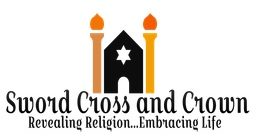
THE ASSURANCE OF THINGS HOPED FOR
As we are still in Hebrew’s ‘hall of faith,’ we now find the following – “By faith Isaac blessed Jacob and Esau, even regarding things to come. By faith Jacob, as he was dying, blessed each of the sons of Joseph, and worshipped, leaning on the top of his staff. By faith Joseph, when he was dying, made mention of the exodus of the sons of Israel, and gave commands concerning his bones. By faith Moses, when he was born, was hidden for three months by his parents, because they saw he was a beautiful child, and they were not afraid of the king’s edict. By faith Moses, when he had grown up, refused to be called the son of Pharaoh’s daughter, choosing rather to be mistreated with the people of God than to enjoy the passing pleasures of sin, regarding the reproach of Christ greater riches than the treasures of Egypt; for he was looking to the reward. By faith he left Egypt, not fearing the rage of the king; for he endured, as seeing Him who is unseen. By faith he kept the Passover and the sprinkling of the blood, so that he who destroyed the firstborn would not touch them. By faith they passed through the Red Sea as though they were passing through dry land, and the Egyptians, when they attempted it, were drowned.” (Hebrews 11: 20-29)
Faith is the assurance of things hoped for, the conviction of things not seen. (Hebrews 11: 1) Pastor John MacArthur writes in his study Bible about ‘assurance,’ “The faith described here involves the most solid possible conviction, the God-given present assurance of a future reality.”
Through their trust in God and in His promises, Isaac and Jacob declared blessings over their sons. Joseph showed he trusted that God’s promises would be fulfilled by having his brothers promise to bury him in Canaan, in the land that had been promised to them by God.
Although Pharaoh demanded all his people throw all the male babies into the Nile River, Moses’s mother showed her faith by not allowing this to happen to him. When he was three months old, she put him in an ‘ark of papyrus reeds’ along the bank of the Nile River. Moses became the adopted son of Pharaoh’s daughter, however when he grew up, he refused the benefit of that position and aligned himself with his blood relatives, the Hebrews who were slaves in Egypt.
We see that Moses identified with the Hebrews and the slave labor they were under in Egypt. When Moses witnessed an Egyptian striking a Hebrew, Moses killed the Egyptian. When Pharaoh heard what Moses had done, he wanted to kill Moses, but Moses fled to Midian.
We learn what happened next from Exodus – “Now it happened in the course of those many days that the king of Egypt died. And the sons of Israel sighed because of their slavery, and they cried out; and their cry for help because of their slavery rose up to God. So God heard their groaning; and God remembered His covenant with Abraham, Isaac, and Jacob. And God saw the sons of Israel, and God knew them.” (Exodus 2: 23-25)
Moses worked as a shepherd while living in Midian. One day when Moses came to the mountain called Horeb, the angel of the Lord appeared to Moses in a blazing fire from the midst of a bush. The angel of the Lord, the preincarnate Christ told Moses – “I have surely seen the affliction of My people who are in Egypt, and I have heard their cry because of their taskmasters, for I know their sufferings. So I have come down to deliver them from the hand of the Egyptians and to bring them up from that land to a good and spacious land, to a land flowing with milk and honey, to the place of the Canaanite and the Hittite and the Amorite and the Perizzite and the Hivite and the Jebusite.” (Exodus 3: 7-8)
Moses then showed his faith by obeying God’s instructions about the Passover. The firstborn sons of the Hebrews were spared being put to death because of their obedience in placing the blood of the Passover lamb on their doorposts as God had told them to do.
The following account tells what happened after the children of Israel left Egypt – “Now Pharaoh drew near, and the sons of Israel lifted up their eyes, and behold, the Egyptians were marching after them, and they became very afraid; so the sons of Israel cried out to Yahweh. Then they said to Moses, ‘Is it because there were no graves in Egypt that you have taken us away to die in the wilderness? What is this you have done against us in bringing us out of Egypt? Is this not the word that we spoke to you in Egypt, saying, ‘Leave us alone that we may serve the Egyptians?’ For it would have been better for us to serve the Egyptians than for us to die in the wilderness.’ But Moses said to the people, ‘Do not fear! Stand by and see the salvation of Yahweh which He will accomplish for you today, you will never see them again forever. Yahweh will fight for you, and you will keep silent.’” (Exodus 14: 10-14)
God then told Moses to “raise up your staff and stretch out your hand over the sea and split it, and the sons of Israel shall go through the midst of the sea on dry land.” (Exodus 14: 16)
James taught in the New Testament – “What use is it, my brothers, if someone says he has faith but he has no works? Can that faith save him? If a brother or sister is without clothing and in need of daily food, and one of you says to them, Go in peace, be warmed and be filled, and yet you do not give them what is necessary for their body, what use is that? Even so faith, if it has no works, is dead by itself. But someone will say, ‘You have faith; and I have works. Show me your faith without the works, and I will show you my faith by my works.’” (James 2: 14-18)
We can trust in the true and living God of the Bible. Jesus is God who veiled Himself in flesh and came to earth, to pay the eternal price for our complete redemption. He has left testimonial evidence of who He is, and what He has done for us. He was seen resurrected and alive after He died by many people. He wants us to repent, turn from our sins and rebellion and trust Him personally. A life of true faith is evidenced by works which God brings about for us to do throughout our lives. Won’t you turn your heart and life over to Him today and realize how much He loves you.
REFERENCES:
The McArthur Study Bible, 2nd Edition. 2020. Thomas Nelson.


